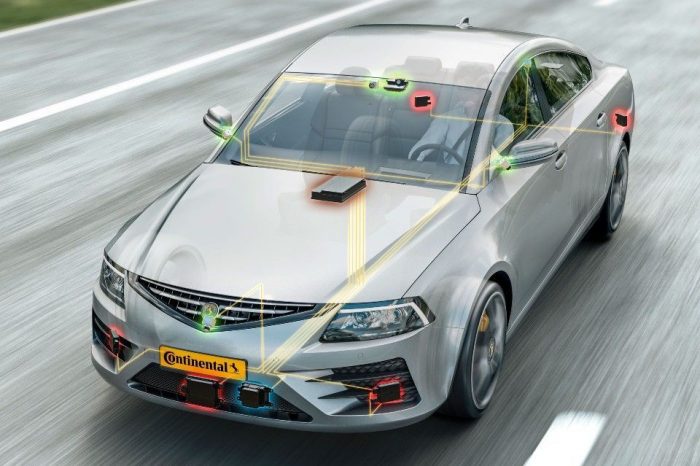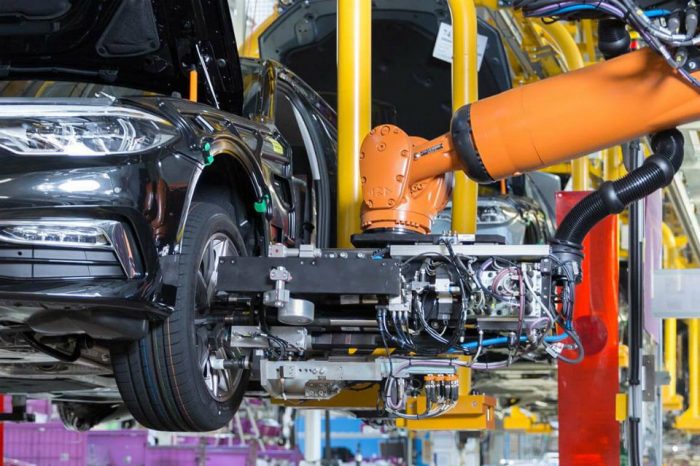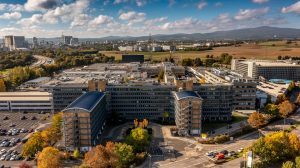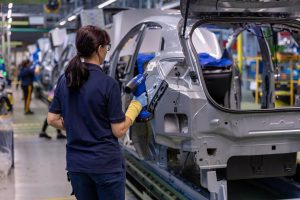Romania to become regional growth pole for the automotive industry
Romania will position itself as a regional growth pole for the future of the automotive industry, said Paula Pirvanescu, State Secretary InvestRomania within the Ministry for the Business Environment, Commerce and Entrepreneurship.
“The country is expected to increase its competitiveness on international markets through foreign investments in various sectors of the industry,” she said in an interview for Automotive Today. “The world is changing. Global trends indicate a transition to hybrid and electric cars, dropping conventional engines, such as diesels. We believe that Artificial Intelligence and virtual reality will be maintained, transposed into the construction of autonomous vehicles such as those built by Google or by Tesla, which have already begun to implement certain new technologies into conventional cars.”
Paula Pirvanescu claimed that 3D printing has evolved rapidly in recent years, stimulating the implementation of the recycling concept in the automotive industry, making it easy and inexpensive to refurbish one’s car or change its appearance whenever one wants, thus increasing its lifetime.
Furthermore, she said the Cloud Driving concept will allow personalization of driving experiences based on the driver; by logging in with their personal data, the software will provide custom settings and preferences, depending on the driver’s options and behaviour.
“More and more car manufacturers have begun to incorporate this type of multiple-featured functions, such as voice-controlled apps, parking systems based on Artificial Intelligence or Bluetooth connectivity,” she added. “The development of the IT sector in recent years has made it a facilitator for the automotive sector. By creating new partnerships or strengthening existing ones between universities and the business environment, Romania is part of the Industry 4.0 Revolution.”
State Secretary Pirvanescu mentioned Brexit as a big opportunity for Romania to attract new foreign investors.
“Brexit may bring the relocation of some automotive companies, considering the new taxes and other lost benefits (derived from EU membership) will have a negative impact on the UK auto industry, as components cross the borders several times during the manufacturing process,” she explained.
“The costs of building a car in the UK could increase by around 3,000 Euro per unit if a ten per cent tax would be imposed, so some manufacturers are expected to head to locations like Romania, for their competitiveness in terms of costs and profit margins.”
The Romanian automotive industry has seen an upward trend in recent years, according to the State Secretary, and today is in a transition period to high added-value investment projects.
In this respect, the Paula Pirvanescu mentioned Bosch Research and Development Centre (Cluj-Napoca), Porsche R & D Centre for Autonomous Vehicle Technology (Cluj-Napoca), the two research and development centres of Continental in Iasi and Brasov; and last but not least, Renault’s R&D centre in Titu (Dambovita County), the largest outside France.
According to Paula Pirvanescu, Romania has a number of competitive advantages in the automotive industry, among which she mentioned: “Well-qualified labour force at competitive prices, with a good capacity to overcome the cultural and linguistic threshold, our country ranking third when it comes to the lowest wages in the European Union (90 per cent of graduates are English speakers, and a large number of them are also speakers of German, French, Spanish or Italian), low taxes, low utility costs, a network of 14 technical universities; tax incentives for research and development including in the automotive sector, a network of public and private industrial parks with access to utilities and facilities, depending on the specifics of the activity.”
The automotive sector is a key sector with a long tradition in Romania, enjoying the presence of two of the world’s largest automobile manufacturers: Renault and Ford and more than 600 suppliers, thus offering one of the highest quality levels in the productions of automotive components in Eastern Europe.
State Secretary Pirvanescu said that the lack of qualified workforce is an issue which has been addressed in the past few years with the introduction of dual education and the creation of partnerships between automotive companies and major universities in Romania.
Paula Pirvanescu represents InvestRomania’s team, described as the foreign investors’ problem-solving hub and one-stop-shop for foreign investors. InvestRomania offers expertise and advisory services to foreign investors to fast track their projects.
The Ministry for the Business Environment, Commerce and Entrepreneurship recently launched a new tool designed to support foreign investors and domestic entrepreneurs in identifying potential partners for new businesses or expending the already existing ones. The platform is www.businessromania.gov.ro and was created as an instrument that will support foreign investors and local companies in identifying potential partners to create new businesses or develop existing ones.
The platform will include information on funding options for Romanian companies, fiscal and legal framework for commercial companies and details of the promotion of Greenfield and Brownfield projects – projects that can be developed in a public-private partnership with the local public authorities.
Coming back to InvestRomania’s mission, Paula Pirvanescu represented Romania at the OECD (Organization for Economic Cooperation and Development) Ministerial Conference on “Strengthening SMEs and Entrepreneurship for Productivity and Inclusive Growth”, held in Ciudad de Mexico on 22-23 February.
The Romanian official presented the Government’s Programmes for encouraging and enhancing SMEs establishment and development in the country, financed from the state budget, implemented as “de minimis” schemes for debutant entrepreneurs, experienced SMEs, women entrepreneurs and handicrafts entrepreneurs by the Ministry for Business Environment, Commerce and Entrepreneurship.
Among the national programmes implemented by the Ministry of Business Environment, Commerce and Entrepreneurship, some have been particularly highlighted: the “Start-up Nation Romania” Programme, that involves financial support for start-ups and debutant entrepreneurs, the “Multiannual Programme for Micro industrialization” and “Programme for upgrading the commercialization of market products and services” that facilitates access to finance for experienced SMEs.
Romania’s accession to the OECD is a strategic objective for the country, and is being included in the Governance Program. Romania officially submitted its application for accession to the OECD on the previous enlargement exercises in April 2004 and November 2012 and renewed it in 2016 and 2017.
Concluding her speech, the Secretary of State reiterated Romania’s commitment in obtaining OECD membership status: “I would like to invite you to consider Romania’s regional role and expertise as a solid ground in bringing a most useful contribution to the enhancement of OECD policies and projects within the region. Taking into consideration Romania’s involvement in OECD’s structures and committees and its fulfilment of the OECD membership criteria, we are confident that this ministerial meeting will increase Romania’s chances to be part of the next wave of enlargement of the Organization.”


